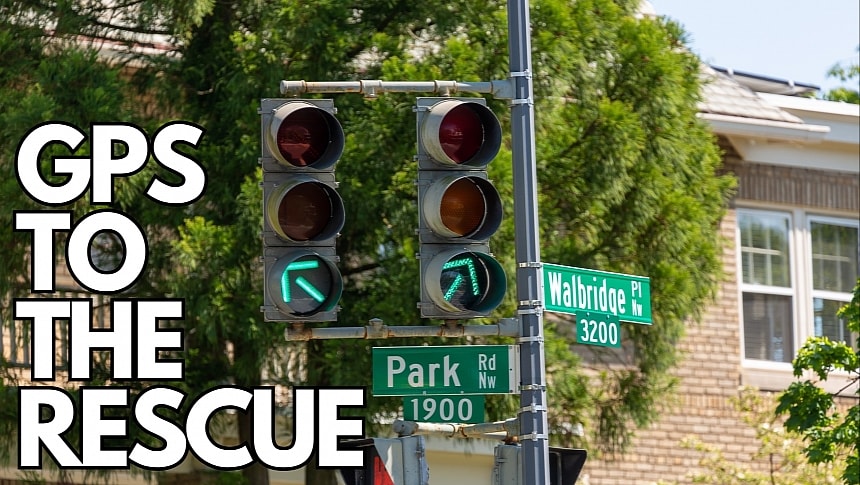Smarter traffic lights have been on the agenda of authorities worldwide for many years, but few managed to find the right recipe to eliminate traffic jams.
University of Michigan researchers discovered that all it takes for traffic signals to become "smarter" is a connection to vehicle GPS sensors.
A recent study conducted over the course of 18 months in Birmingham, Michigan, helped researchers understand that dealing with dynamic traffic patterns is impossible using the existing traffic signal timing systems.
Most traffic lights are configured based on the time of day, and while some can count cars and adjust timing accordingly, GPS data could help them "understand" traffic patterns more accurately.
Researchers analyzed data collected from GM vehicles fitted with GPS sensors to extrapolate traffic dynamics, eventually determining that it's possible to establish patterns that would allow traffic lights to fight congestion and reduce delays. GPS sensors can supply information, including the number of stops at a vehicle, the route selection, and the vehicle delay.
Instead of a standard traffic light that counts cars and estimates travel speed, a GPS-connected system would gain access to data, allowing for real-time adjustments. Researchers explain that after the health crisis that hit us in 2020, traffic has become more dynamic, sometimes impossible to predict. Navigation apps, such as Google Maps and Waze, use historical traffic patterns and real-time data to look for faster routes, but the proposed system would offer improved accuracy thanks to data collected from vehicles directly.
The concept doesn't require all vehicles on the road to be fitted with GPS sensors. The test included only GM vehicles – and researchers estimate that GM makes up to 10% of the vehicles in the United States – so collecting information from one in ten vehicles is enough to power the system. For example, a car that stops 100 feet (approximately 30 meters) from an intersection suggests it's waiting at a traffic light, and the system can calculate how many cars are waiting in front even if they lack GPS.
Providing traffic light systems with access to connected cars is also more cost-effective than the traditional adaptive systems. Researchers estimate that an adaptive system at a single intersection can cost up to $50,000, while the GPS-powered system "would cost a fraction of that." The optimization process is also complex and requires a thorough analysis of the collected data, with researchers estimating that authorities typically reassess traffic configurations in two to five years.
The University of Michigan's proposal can be adopted worldwide – not just in the United States – if authorities can configure their traffic light systems to collect data from the GPS-powered vehicles on the road. However, no municipalities expressed their interest in what researchers have described as "the world's first large-scale, cloud-based traffic signal retiming system."
A recent study conducted over the course of 18 months in Birmingham, Michigan, helped researchers understand that dealing with dynamic traffic patterns is impossible using the existing traffic signal timing systems.
Most traffic lights are configured based on the time of day, and while some can count cars and adjust timing accordingly, GPS data could help them "understand" traffic patterns more accurately.
Researchers analyzed data collected from GM vehicles fitted with GPS sensors to extrapolate traffic dynamics, eventually determining that it's possible to establish patterns that would allow traffic lights to fight congestion and reduce delays. GPS sensors can supply information, including the number of stops at a vehicle, the route selection, and the vehicle delay.
Instead of a standard traffic light that counts cars and estimates travel speed, a GPS-connected system would gain access to data, allowing for real-time adjustments. Researchers explain that after the health crisis that hit us in 2020, traffic has become more dynamic, sometimes impossible to predict. Navigation apps, such as Google Maps and Waze, use historical traffic patterns and real-time data to look for faster routes, but the proposed system would offer improved accuracy thanks to data collected from vehicles directly.
The concept doesn't require all vehicles on the road to be fitted with GPS sensors. The test included only GM vehicles – and researchers estimate that GM makes up to 10% of the vehicles in the United States – so collecting information from one in ten vehicles is enough to power the system. For example, a car that stops 100 feet (approximately 30 meters) from an intersection suggests it's waiting at a traffic light, and the system can calculate how many cars are waiting in front even if they lack GPS.
Providing traffic light systems with access to connected cars is also more cost-effective than the traditional adaptive systems. Researchers estimate that an adaptive system at a single intersection can cost up to $50,000, while the GPS-powered system "would cost a fraction of that." The optimization process is also complex and requires a thorough analysis of the collected data, with researchers estimating that authorities typically reassess traffic configurations in two to five years.
The University of Michigan's proposal can be adopted worldwide – not just in the United States – if authorities can configure their traffic light systems to collect data from the GPS-powered vehicles on the road. However, no municipalities expressed their interest in what researchers have described as "the world's first large-scale, cloud-based traffic signal retiming system."
Using GPS data, @UMich researchers can recalibrate traffic signals to significantly reduce congestion and delays at intersections. https://t.co/AY65Xl4Zrb
— Michigan's URC (@urcmich) March 4, 2024







